As interesting as the birds are the history, culture and current life in Bhutan. The country is landlocked, bordered by Tibet to the north and the remainder by India.
First, History: Many of the Dzongs and Temples built in prior centuries retain their beauty and their importance for the cultural identification of Bhutan with its Buddhist roots. They are stunning architectural gems that combine governance and spirituality. We especially enjoyed our morning at Punakha Dzong with one of our local Bhutanese guides, who was very knowledgeable of the history and religious art and artifacts which adorn the premises.
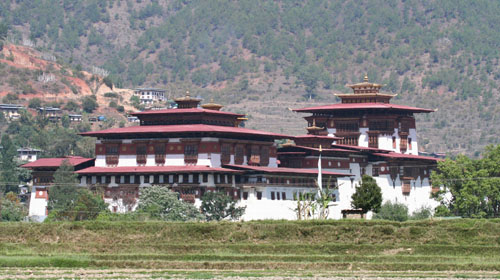
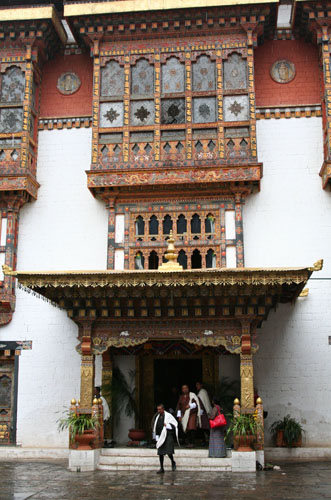
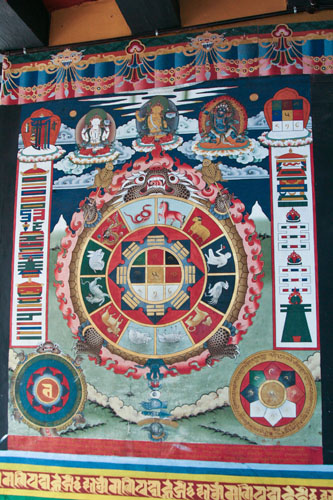
Prayer Wheel
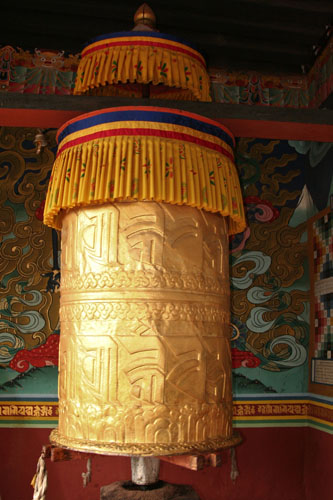
Prayer flags are flying everywhere.
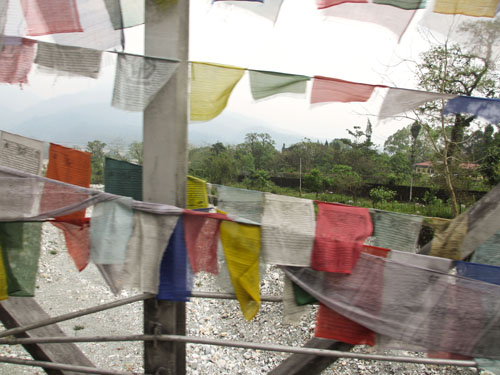
and large pictures of the king and queen are very prominent.
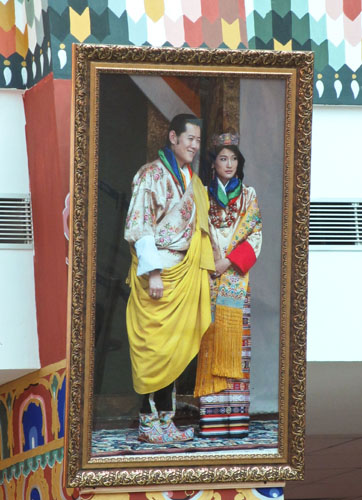
Culture: Our impression of the people of Bhutan is that many of the people are artists who have a deep appreciation of nature and beauty; not so much, science and engineering. Many homes, even in the remote and humble villages, are decorated attractively and speak of the pride of the occupants. Much of the ancient forest is preserved and wild life thrives.
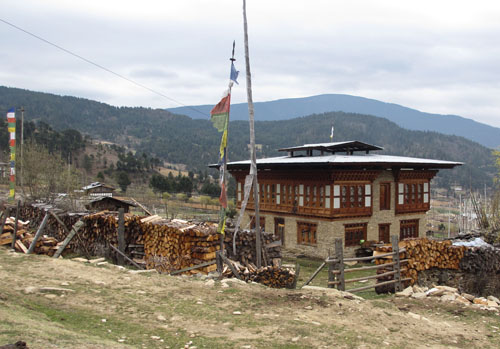
Our Bhutanese guide told us that all children attend free public education through 10th grade. At that point a test is given to determine who will continue for two more years. Here is a young boy walking to school.
Archery is the national sport. The targets are small and at a long distance away.
The physical aspects of the country lend to its preservation. Mountainous it is, and to a degree that cannot be appreciated until you have gone into the high, rural areas, where the road (singular is appropriate) is difficult and dangerous. We were blessed with a very skilled driver and we were most appreciative of his good judgment, caution and constant good humor. Guides are certainly important, but we came to the conclusion that a good driver is absolutely essential. We had one.
On many days in the mountains we experienced low-hanging clouds.
Current Life: City life (Paro, Thimpu, some others), bustles, but with infrastructure in need of work and no traffic lights.
Rural life is primitive.
Witness the method of cultivation of the fields.
Bhutan is viewed as a model for proactive conservation initiatives. The Kingdom has received international acclaim for its commitment to the maintenance of its biodiversity.
The government aims to promote conservation as part of its plan to target Gross National Happiness. It currently has net zero greenhouse gas emissions because the small amount of pollution it creates is absorbed by the forests that cover most of the country.
